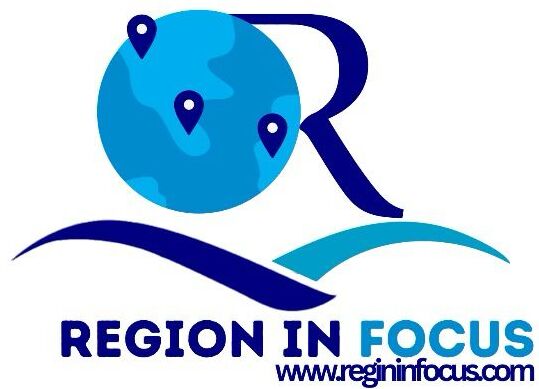Introduction
In the era of digitalization, information has turned into the new oil. Corporations, governments and third party intermediaries collect and monetize personal information regarding the habits, preferences, locations, and communications of individuals on a regular basis. This is what is sometimes referred to as surveillance capitalism–a new era of economic operation in which the experience of being has become a commodity on which it can make profits. Simultaneously, privacy rights, which have long been established in democratic constitutions and the international human rights law, are in a crisis like never before. The issue of surveillance capitalism and privacy rights is not solely a matter of law or technical concern, but also of the nature of the society we would like to be living in.
A Prophet in the Top-Down Economy.
Surveillance capitalism is a concept known by many people and popularized by a scholar known as Shoshana Zuboff; this term is used to describe the process of collecting personal information by online platforms and converting it into predictive products that can be used and tailored to manipulate and influence customer actions. Social media, search engines, and mobile applications are used to monitor user activity on devices and across environments to create detailed profiles. These profiles are then given to advertisers or make some adjustments to the algorithms to achieve maximum engagement and profit. In contrast to the classical capitalism, surveillance capitalism commercializes not only labor or even physical objects but also the personal aspects of human life.
Mechanics of Data Extraction.
The infrastructure of unceasing data gathering, cookies, geolocation services, biometric sensors, and machine learning systems that Process Mountains of personal information are the backbone of surveillance capitalism. This system brings in knowledge and power imbalances. Businesses have a capacity to comprehend people better than they do themselves, and this means they can predict and manipulate behaviors in a manner that questions the idea of free will and choice. The allegedly free services such as email or social media are given at the unseen price of end-to-end surveillance.
Privacy Rights under Fire.
The U.S. has been historically the legal framework that is used to protect privacy rights. The fourth amendment or the European convention on human rights. Nevertheless, these frameworks were created during a pre-digital age when surveillance was restricted and focused. The old fashioned privacy safeguards have become ineffective in the modern world of mass and the constant gathering of data. The consent mechanisms are hidden in long terms-of-service agreements; the data moves across national boundaries; and the emergence of new technologies such as facial recognition or the use of AI-driven profiling presents a threat, which the legislation had never imagined.
Response Regulations and their boundaries.
Various jurisdictions have been trying to react to the privacy crisis. The General Data Protection Regulation (GDPR) established by the European Union imposes rather high requirements on data collection, such as explicit consent and data minimization, as well as the right to erasure. The law of privacy in the United States is still disjointed, consisting of industry-based laws, and no single federal law. China, in its turn, has passed a Personal Information Protection Law (PIPL) but has large scale state surveillance initiatives, combining business and government data gathering in a manner that makes privacy protection challenging. Nevertheless, with all this, effective regulation is a tough task, due to security loopholes, technical and technological complication and international aspect of data flow.
Economic Strength vs. Personality Rights.
The main issue is that surveillance capitalism establishes strong motivations to make companies gather and sell data. The ability to gather data on a large scale is what generates the competitive advantage of digital platforms, and hence privacy protection directly threatens the business model of the specified tech. This provides a policy paradox: citizens want to see more protection of their privacy, but governments also depend on private data collections to ensure security, good health, and economic policies. Consequently, the privacy rights are highly likely to be prioritized behind the business and state concerns.
Ethical and Social Implications.
Dilution of privacy has far reaching ethical and social implications. It is deceptive of personal individuality because it exposes humans to constant surveillance and nudging. It is a danger to democracy as it allows micro targeted political campaigning and disinformation. It intensifies inequalities since marginalized communities are at times the main sufferers of intrusive surveillance without proper protection. Besides, normalization of surveillance may cause chilling effect on free expression, innovation, and dissent.
In the direction of a Rights-Based Digital Economy.
It is not possible to solve the issue of conflict between surveillance capitalism and privacy rights by just regulating the matter in bits. It demands a reappraisal of the digital economy in itself. Other researchers and advocates suggest that personal data should be considered a human right and not a commodity so that individuals really possess the control over the collection and utilization of personal data. Still others propose more vigorous antitrust enforcement to disaggregate dominant platforms whose authority is based on data monopolies. Other technological solutions that can minimize data exposure are privacy-enhancing technologies, end-to-end encryption, and decentralized platforms.
The Role of Global governance.
Since information flows cross-national boundaries, individual governments cannot be left with privacy protection. Global forms of cooperation are needed to set minimum standards of data protection, restrict transnational surveillance, and encourage transparency. In the absence of international standards, organizations will be able to play regulatory arbitrage, moving their activities to jurisdictions where privacy regulations are less strict. There is a role in the creation of a fair and privacy-conscious digital ecosystem played by multilateral forums, trade arrangements, as well as human rights bodies.
Conclusion
One of the most influential struggles in the 21 st century has been the confrontation between surveillance capitalism and the right to privacy. With the digital technologies penetrating all spheres of life, the stakes of personal freedom, democracy, and social justice get higher and higher. Maintaining privacy is not simply the defense of personal preferences; it is the defense of the circumstances of autonomy, accountability and trust in the society. Unrestrained, surveillance capitalism is destined to turn citizens into data points and democracy into a marketplace of manipulation. Nevertheless, by making aggressive policy decisions, technological development, and civil participation, one can still create a digital economy that is not invasive to privacy and at the same time can encourage innovation and expansion.


